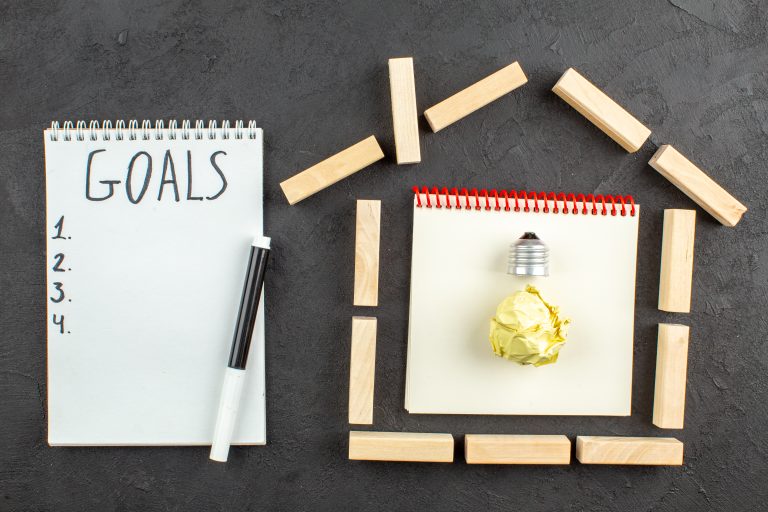
- How to improve mental health in the New Year
- Simple ways to prioritize mental well-being
- Mental health goals for 2025
Table of Contents
ToggleStarting Of New Year
The New Year offers a perfect opportunity to reset and focus on what truly matters—your mental health.
With life’s daily demands, prioritizing your well-being can seem challenging.
But making mental health a focus in 2025 doesn’t have to be overwhelming in new year.
Here are seven practical tips to help you start the year on the right note.
Start with Small, Manageable Goals

When it comes to mental health in new year 2025, the key to success lies in small, achievable goals. Overcommitting to drastic changes can lead to frustration and burnout. Instead, break your objectives into bite-sized steps.
- Focusing on mental health doesn’t mean overhauling your entire life at once.
- Begin with small, achievable goals that align with your daily routine.
- Breaking goals into smaller parts also reduces the pressure to succeed.
- When you accomplish even the tiniest milestone, you feel a sense of progress.
- This kind of encouragement gives you the motivation to keep moving forward.
For example, commit to five minutes of journaling each morning.
- These small steps build momentum and gradually create lasting change
- Journal for five minutes each morning to reflect on your emotions.
- Take a moment each night to write down three things you’re grateful for.
These habits don’t require much time but create a ripple effect, fostering positivity and mental clarity over time.
Set Realistic Expectations
Instead of saying, “I’ll never stress out again,” aim for, “I’ll spend five minutes a day relaxing.”
Over time, these small habits grow into powerful routines that prioritize mental well-being in this new year 2025.
Why Small Goals Matter?
- Small goals are easier to stick with than massive, life-altering changes.
- They’re also less intimidating, making it more likely for you to follow through.
- Consistency is key, and small goals pave the way for big results.
Make Self-Care a Daily Practice
Self-care is one of the most powerful ways to nurture your mental health.
It’s not just bubble baths or spa days—it’s about doing what rejuvenates you.
Whether it’s stretching, meditating, or sipping tea in silence, the time spent recharges you emotionally.
Self-care isn’t just a buzzword; it’s an essential part of maintaining mental health. But self-care doesn’t have to mean elaborate spa days or hours-long rituals.
Here are simple ways to incorporate self-care into your daily life
- Cold water may promote the oxidation of Take a walk outdoors to connect with nature.
- Spend time doing something you love, like painting or reading.
- Learn to say “no” to obligations that leave you feeling drained.
- The key is consistency—making small self-care actions a regular part of your routine can significantly impact your mental well-being.
- potentially increasing the utilization of stored fat as a source of energy during physical activity in new year.
Self-Care Ideas for Busy People
- No matter how busy you are, there’s always a way to make time for self-care.
- Try listening to your favorite podcast while commuting or enjoying a 5-minute breathing exercise.
- Small moments add up to significant benefits.
Prioritize Quality Sleep

Sleep is foundational to good mental health in new year 2025.
When you’re well-rested, you’re better equipped to handle stress and stay positive.
Establish a bedtime routine that helps your body recognize it’s time to relax and unwind.
This might include turning off screens an hour before bed, reading, or dimming the lights.
Sleep consistency is just as important as duration.
Try to go to bed and wake up at the same time every day, including weekends
Tips for Better Sleep Hygiene
Begin by making your bedroom cool, dark, and quiet. Try to cut back on caffeine and avoid big meals in the evening.
Establish a calming pre-sleep ritual like journaling or light stretching in new year.
Create a sleep-friendly environment by:
- Keeping your bedroom cool, dark, and quiet.
- Start a regular bedtime routine, like reading a book or doing some quiet meditation.
- Avoiding screens and caffeine before bed.
- When you prioritize sleep, you’re investing in better emotional resilience and overall mental clarity.
Build a Supportive Social Circle

- Your relationships play a huge role in mental health in this new year.
- Spending time with people who uplift and encourage you can boost your mood.
- Don’t hesitate to reach out to old friends or join groups that align with your interests.
- Human connection provides a sense of belonging and reduces feelings of loneliness.
How to Strengthen Relationships?
- Be intentional about your interactions.
- Schedule regular check-ins with loved ones and show genuine interest in their lives.
- Even small gestures can make a big difference in strengthening relationships.
- Humans thrive on connection, and having a supportive social circle can do wonders for your mental health. Being connected to others makes us feel like we belong and helps us feel less lonely in this new year.
How to Nature Meaningful Connections?
- Reconnect with a friend or family member you haven’t talked to in a while.
- Find community groups or clubs that share your interests.
- Be present in conversations, listening actively and showing empathy.
- Strong relationships act as a buffer during tough times, reminding you that you’re not alone.
Limit Stress Triggers
Stress is a natural part of life, but too much can impact your mental health in new year.
Identify your primary stressors and take steps to address them.
This might mean decluttering your home, saying no to extra commitments, or creating a budget.
Taking control of small stressors gives you more capacity to handle bigger challenges in this new year.
Practical Stress Management Tips
- Explore different relaxation techniques, such as deep breathing, progressive muscle relaxation, or journaling, to find what works best for you.”
- These quick exercises can calm your mind and reduce stress in minutes.
- Life throws curveballs, and stress is inevitable. The key is finding healthy ways to cope with it. Proactively addressing stressors helps prevent them from becoming overwhelming.
Start with these strategies:
- Use time management tools to organize your day.
- Practice deep breathing or progressive muscle relaxation during stressful moments.
- Declutter your physical space to promote a sense of calm.
- By taking small, actionable steps, you can keep stress levels in check and create a more peaceful mindset.
- Life throws curveballs, and stress is inevitable. It’s all about discovering healthy coping mechanisms that help you stay balanced. Proactively addressing stressors helps prevent them from becoming overwhelming this new year.
Incorporate Mindfulness Practices

Mindfulness brings your focus to the present, helping to reduce anxiety and improve clarity.
It can be as easy as paying attention to your breath or simply noticing what’s around you without getting caught up in thoughts.
With regular practice, mindfulness can become a daily anchor, helping you navigate life with more ease and clarity.
Mindfulness has the power to transform your mental health in amazing ways.
It encourages you to focus on the present moment, helping to reduce anxiety and improve emotional regulation.
Simple mindfulness practices include:
- Start small, with just 2–3 minutes of mindfulness exercises each day.
- Taking a few minutes to breathe deeply and focus on your breath.
- Observing your surroundings without judgment, noting colors, sounds, and textures.
- Practicing a body scan to release tension from head to toe.
- The beauty of mindfulness is its simplicity—you can incorporate it into almost any part of your day.
Easy Mindfulness Exercises for Beginners
- (Pause for 10 seconds)
- Okay, now open your eyes. How did that feel?
- Or, practice a “body scan,” noticing tension in different parts of your body and relaxing them.
Seek Professional Support if Needed
Sometimes, the best way to prioritize mental health is by seeking help from a professional.
Therapists provide a safe space to discuss challenges and develop coping strategies.
Don’t hesitate to reach out for help if you’re feeling overwhelmed. Don’t hesitate to reach out to someone you trust.
Self-care and mindfulness aren’t enough, and that’s okay. Seeking help from a mental health professional is a proactive step toward healing and growth.
Consider therapy if:
- You’re feeling stuck or overwhelmed.
- Stress is interfering with your daily life.
- You’ve experienced significant changes or trauma.
- Therapists can provide guidance and tools tailored to your needs, empowering you to navigate life’s challenges with confidence.
When to Consider Therapy
- Consider therapy if you’re feeling stuck, struggling to manage stress, or noticing a decline in your mental health.
- Taking those deep breaths is a proactive way to invest in your well-being
- Conclusion
- Prioritizing mental health in 2025 doesn’t have to be complicated.
- By taking small, meaningful actions every day, you can make a lasting difference in your well-being.
- Start today with these seven tips, and watch how your mindset and happiness evolve throughout the year.
Why 2025 Is the Year for Change?
As we step into 2025, it’s important to remember that prioritizing mental health isn’t a one-time resolution—it’s an ongoing commitment to yourself. Each small action, whether it’s a mindful breath or a heartfelt conversation, brings you closer to a balanced and fulfilling life.
Make this year the one where your mental health takes center stage. The benefits—greater happiness, resilience, and peace of mind—are well worth the effort.
Start today. Start small. Your mental well-being is the greatest gift you can give yourself in 2025.


